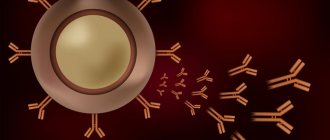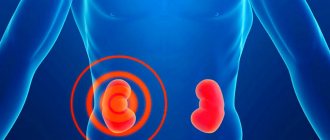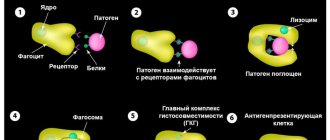The National Drug Treatment Service has been treating alcoholism since 2009. Over 11 years of work, we have permanently saved more than 3,000 people from alcohol addiction. Our clinic provides treatment for alcoholism anonymously and with a 100% guarantee against relapse, subject to the simple recommendations of our doctors.
Diagnosis of alcohol dependence
Dependence on chemical substances develops as a result of systematic and long-term use of alcohol. Tolerance to the poison gradually develops, and natural reactions to it are lost (nausea, vomiting, lethargy, etc.). In the future, the patient faces an overdose or severe poisoning even with the usual dose. Early diagnosis of the disease will help avoid tragedy. In this section of the site we will try to tell you how everyday drunkenness differs from a serious illness and about the stages of alcohol dependence.
There are three main stages of addiction to alcohol, which are characterized by:
1). Stage I of alcohol dependence: painful craving for drinking, clouding of consciousness, memory loss, craving to drink “in reserve”;
2). Stage II of alcohol dependence: rapid loss of self-control, signs of antisocial behavior, hangover syndrome (provokes physical dependence), depressed mood during the period of forced sobriety, shifting priorities;
3). Stage III of alcohol dependence: regular binges, decreased critical attitude towards the quality of drinking, development of phobias and psychoses. An antisocial lifestyle progresses. A pronounced general toxic effect manifests itself in functional and then organic disorders of the nervous system and internal organs.
Basic methods for diagnosing alcoholism:
1). Taking an anamnesis (during a conversation with the patient and his relatives);
2). Physical examination (palpation of the liver, listening to the heart, measuring blood pressure and pulse, checking basic reflexes);
3). Laboratory diagnostics (general and biochemical blood tests, general urinalysis, determination of immune status);
4). Instrumental diagnostics (ultrasound, ECG, endoscopy, REG, CT);
5). Serological blood test;
6). Consultation with medical specialists.
Intensive
150,000 months
- Accompanying a psychiatrist-narcologist
- Individual plan and diagnostics
- Accommodation 1-2 people per room
- 4 meals a day
- Individual support
- Personal therapy with an intensive psychologist
- Group classes and seminars
- Leisure time organized
- Sports events
- Yoga, sauna, swimming pool
- Massotherapy
- Intensive program for relatives
Order service
Where to get treatment for alcoholism in Moscow
The problem of excessive alcohol consumption, unfortunately, is as old as the world. Therefore, at present, in the field of alcoholism treatment, there are many clinics that provide assistance to people dependent on alcohol.
Meanwhile, a private clinic for the treatment of alcoholism must have all the modern capabilities that allow a person to be completely cured of his addiction in the shortest possible time.
The Rehab Nau Center carries out all the procedures necessary for the treatment of alcoholism in Moscow:
- Removal from binge drinking, cleansing the body, relieving withdrawal symptoms, restoring normal functioning of internal organs.
- Treatment of delirium (delirium tremens).
- Coding for alcoholism is medicinal or hypnotic.
- Rehabilitation, including a course of 21 days in a hospital.
- Modern psychotherapy
Often people who abuse alcohol do not want to see a doctor for fear of publicity. This is especially true for cases of treatment of female alcoholism or people who occupy a high place in society, constantly communicate with people, etc.
For all such situations, our clinic provides anonymous treatment for alcoholism, including in VIP conditions, according to an individual program in the comfort of your home with the ability to work remotely via the Internet.
It is also possible for a specialist to visit your home, but we strongly recommend that you undergo a course of alcoholism treatment in a hospital setting.
Literature:
- Program for the prevention and treatment of tobacco smoking, alcoholism, drug addiction and substance abuse from the perspective of psychiatry / N. P. Zhizhko; Ministry of Education Ros. Federation. Krasnoyarsk state University [and others]. – Krasnoyarsk, 2000. – 23 p.
- Drug prevention: a guide / P. I. Sidorov. – 2nd ed., revised. and additional – Moscow: MEDpress-inform, 2006 (M.: Printing house “News”). – 719 p.
- Guide to addictionology / Axelrod B. A. et al.; edited by V. D. Mendelevich. – St. Petersburg: Rech, 2007. – 766 p.
Contact phone number
+7 (495) 774-62-59 around the clock
Request a call
When treating alcoholism, the result depends on a combination of several factors.
This includes the desire of the patient and his relatives to overcome the disease, the competence of doctors, and the availability of modern equipment and proven working techniques in the alcoholism treatment clinic. The patient’s quality of life, the ability to accept oneself and the world objectively, as a friendly, positive environment for a normal life, and not as a field of constant battle with everyone and everything, comes to the fore. The ability to cope with difficulties soberly does not come overnight; it is the result of certain efforts. Trust in people and God will also not return on its own (it’s no secret that alcoholics trust few people or anything), you’ll have to work on yourself for this. But the result is worth it. People who quit drinking alcohol are especially able to enjoy life and the new possibilities of sobriety.
It is possible to cure alcoholism, just come to our clinic and you will be treated by the best specialists in the field of alcoholism treatment. Alcoholism is quite treatable using modern methods, and a positive result is guaranteed if all recommendations and guidelines of the treatment team are followed.
Treatment prices
Individual psychotherapy
A certain feature of group psychotherapy for alcoholism is the presence in it of a pronounced component of rational psychotherapy. At the same time, the tasks of individual psychotherapy for alcoholics are considered to be the analysis of the underlying mechanisms of the onset of the disease, the influence on the conscious and unconscious attitudes of patients through a detailed reconstruction of their anamnesis, the establishment of cause-and-effect relationships between premorbid personality characteristics, lifestyle and alcohol abuse. Others indicate that individual psychotherapy should be personality-oriented in relation to each patient and its main task is not only to strengthen the teetotal attitude, but also to teach the patient how to deactualize the primary pathological attraction to alcohol in case of its exacerbation during remission.
Based on the fact that group rational psychotherapy has the same tasks as individual one (overcoming alcoholic anosognosia, creating an attitude towards treatment and a sober lifestyle), among the advantages of group psychotherapy they note the possibility of a significantly larger coverage of patients with less time, their positive mutual induction.
It has been established that the effectiveness of group psychotherapy for alcohol dependence is closely related to family psychotherapy. At the same time, its main tasks are to identify conflicts between spouses, reconstruct family relationships, and adapt the family and the patient to the sobriety regime. The authors revealed statistical significance between the degree of activity of wives' attitude towards treatment and the therapeutic effect in alcoholism. At the same time, it was found that relationships improved significantly in those families where wives were involved in psychotherapy, especially group therapy. At the same time, remissions for more than a year were observed in 75.3% of patients.
Up
Treatment of alcohol addiction in our clinic
We have seen from our own experience that the process of providing quality treatment for alcohol addiction is also important to achieve success.
We carry it out in four stages:
- Cleansing the body, restoring the functioning of internal organs.
- Elimination of physical dependence (coding is possible for the period of treatment, for additional motivation of the patient).
- Elimination of mental dependence, rehabilitation, social adaptation.
- Post-treatment support for the patient - monitoring the psychological state, overcoming crises and stress in sobriety.
Recently, a lot of controversy has arisen regarding the possibility of treating beer alcoholism.
We assure you: there is no reason to doubt the positive outcome of the procedures; this is confirmed by the successful experience of thousands of people. A full course of treatment for chronic alcohol dependence lasts about a year, but each case is individual, and the decision on the timing of treatment is made separately for each patient.
In our clinic, treatment of alcohol addiction of any degree of complexity is our daily practice.
Contact us for help, call us, we will definitely help. Start with a consultation, call, write, at any time convenient for you.
Cost and terms of alcoholism treatment at the Rehab Nau clinic
Our alcoholism treatment programs are designed for clients of different income levels. There are very affordable programs and VIP level programs with individual accommodation and treatment in conditions of high comfort.
In any case, all patients receive qualified and effective care, the result is always positive.
In our Center, treatment for alcoholism is the main focus, this is our priority. We involve the best specialists in this field, including those from abroad, in the process of treatment for alcoholism. We managed to build the process in such a way that the patient, from the first day of his stay in the clinic, understands that the disease can be overcome, begins to believe in himself against the backdrop of powerful professional support from our specialists, and this has an additional effect, recovery is much faster. The medical part is very rich in procedures, including plasmapheresis, xenon therapy, metabolic therapy, hepatoprotective therapy, neuroprotective therapy and much more. Body therapy can also be very effective; it is an important part of treatment for alcoholism.
After the first stage, psychotherapists and psychiatrists begin working with the patient. The patient’s habitual behavior patterns, personal conflicts that are not fully satisfied in use and beyond its needs, and much more are examined.
Problems in the family are also the object of close attention from the treatment team. Together with the patient and his relatives, a healthy constructive atmosphere of mutual acceptance and respect for each other is formed. Family becomes a source of joy and support rather than tension and anger.
treatment in a general ward (treatment, food, psychological assistance) from 6,000 rubles per day
treatment in a single room from 10,000 rubles per day
treatment in a VIP ward from 16,000 rubles per day
Coding
Coding is a deterrent therapy aimed at overcoming the physical craving for alcohol. It is carried out by oral, intravenous or subcutaneous administration of ethanol antagonists. Medicines based on two substances are used:
1 Naltrexone.
Neutralizes brain receptors that are responsible for euphoria after drinking alcohol. As a result, drinking ethanol has no effect. The patient refuses alcohol due to its uselessness;
2 Disulfiram.
Forms aversion to alcohol. The drug accumulates in the body and causes complete rejection of ethanol when taken. A person feels a sharp deterioration in health, which is expressed in the form of severe headache, vomiting, tachycardia and increased blood pressure. A persistent disgust and fear of drinking alcohol is formed. Medication adjustment neutralizes physical dependence and provides the sobriety necessary for further therapy.
The clinic also conducts coding using the method of the famous Professor Dovzhenko. This method includes elements of cognitive influence, neurolinguistic programming and light hypnosis. The method has no side effects and gives 100% results for up to 5 years.
Psychotherapy
It is the most effective way to overcome psychological addiction. Dr. Shorin’s clinic uses several modern psychotherapeutic techniques.
Cognitive therapy
This type of influence consists of suppressing the irrational beliefs of the addict. The main reasons for drinking alcohol are self-dissatisfaction, uncertainty and low self-esteem. A psychotherapist uses suggestion to help the addict replace negative thoughts with positive ones. Cognitive therapy aims to prevent relapses. The doctor determines the risks of returning to drinking alcohol and teaches the patient to avoid them.
Group therapy
Provides for psychotherapeutic sessions in a group of Alcoholics Anonymous. The absence of condemnation from fellow sufferers contributes to emancipation. During classes, patients share fears and problems and relearn social skills. Many people make new friends. The practice of mentoring has been introduced into group psychotherapy. The sessions are attended by former patients of the clinic who have completely gotten rid of their bad habit. They share their experience of overcoming addiction and how their lives have changed without alcohol. This provides additional support and motivation.
Hypnosis
Hypnosis uses the method of neurolinguistic programming. The psychotherapist influences the patient's subconscious in order to change his habits. The doctor instills information about the dangers of alcohol and encourages the patient to lead a sober lifestyle. Hypnosis is an adjuvant therapy and is effective in combination with other addiction treatment methods.
Treatment for alcoholism in Moscow on an outpatient basis
The final stage of treatment for alcoholism can be considered rehabilitation in our clinic in Moscow, which lasts 21 days according to a special program. The patient either lives in the comfortable conditions of the clinic or comes to classes with specialists every day. After completing the program, the patient is in constant contact with his “sobriety coach,” who is assigned to him by the treatment team.
As a result, the patient receives a stable and high-quality sober life with complete acceptance of himself as he is, sober and able to independently cope with all difficulties without alcohol.
It is important to understand that if a problem has already appeared, it will not disappear on its own. You will have to make efforts for this, and considerable ones.
Call us, we work seven days a week, around the clock, and are always ready to help you.
Alcohol addiction is a serious illness that affects all organs and systems of the human body. Everyone knows examples of how alcoholism has a destructive effect on human life.
Rehabilitation
Rehabilitation is the most important stage in overcoming addiction. Returning to normal life and the same social circle can lead to a relapse. To prevent a breakdown, mandatory rehabilitation is carried out. It consists of supportive psychotherapy, occupational therapy and creative activities.
The addict prepares to adapt to society and re-learns social skills. In a rehabilitation center you can acquire an interesting hobby that will bring pleasure, occupy your leisure time and relieve you of thoughts about drinking. If desired, patients can gain new professional skills and further assistance in finding employment.
Symptoms of alcoholism
On what basis does a doctor diagnose alcoholism?
Based on the presence of certain signs and symptoms:
- A person loses control over the amount of alcohol he drinks;
- The presence of partial retrograde amnesia (the person does not remember what happened during or after drinking);
- Severe morning hangover;
- Lack of gag reflex even when drinking large amounts of alcohol;
- Regular binge drinking.
Signs and stages of alcoholism
Prodromal stage
Stage zero, or prodrome, occurs when the disease itself has not yet developed, but everyday drunkenness occurs.
Alcohol consumption occurs according to the situation, in the company of friends, while the person does not get drunk to the point of unconsciousness or other consequences. At this stage, a person is able to stop drinking alcohol at any time.
The duration of the prodrome stage depends on the individual characteristics of the person, on average it takes 6–12 months.
A short prodrome is typical for asthenics. At this stage, a person is indifferent to whether drinking will happen in the near future or not.
Also, after drinking in a group, he does not drink afterwards on his own. The danger lies in the fact that with daily drunkenness, the prodrome goes into the first stage of alcoholism.
First stage of alcoholism
The first stage of the disease is characterized by an increase in the amount of alcohol consumed and the development of the body's tolerance to alcohol.
The main signs of the first stage of alcoholism are:
- Disappearance of the gag reflex;
- Drinking alcohol alone (after work, before meals, etc.);
- The desire to drink at a seemingly inopportune moment (on the road, at night);
- The appearance of memory lapses, changes in the nature of intoxication
- Scandals in the family, quarrels with work colleagues;
- Loss of interest in such aspects of life as politics, literature, hobbies.
Note that if it is impossible to drink, the craving for alcohol temporarily disappears. But if you drink alcohol, you lose control of the amount you drink.
Second stage of alcoholism
In the presence of the second stage of alcoholism, the alcoholic’s tolerance to alcohol increases significantly, without noticing it, the person takes very large doses.
Behavior changes, it becomes unpredictable, and sometimes dangerous for him and others.
Physiological dependence on alcohol develops. The hangover in the morning is severe, productivity drops sharply. There is a desire to get over your hangover in any way.
The condition is accompanied by physiological changes - nausea, increased blood pressure, rapid heartbeat, trembling of the limbs, and elevated temperature.
Any external stimulus is painfully unbearable. The mood is tense, depressive, gloomy. Changes affect the patient's personality. This manifests itself in indifference to one’s social status, deceit, short temper and anger.
It often comes to assault. There is a decrease in intelligence and loss of active attention.
Such a patient has an awareness of the harm and consequences of his addiction, but there is no fight against it; it is easier for him to obey the desire. This stage of the disease is characterized by the fact that in a state of intoxication, self-control disappears, there is no feeling of shame or awkwardness.
Third stage of alcoholism
This is the last, most difficult stage in terms of treatment. Alcohol is consumed almost daily, the person is in a state of binge drinking.
What changes are characteristic of the third stage?
Severe personality degradation, pathological changes in the psyche.
In addition, organic changes characteristic of this disease develop:
- Alcoholic gastritis;
- Cirrhosis of the liver;
- Alcoholic indurative pancreatitis;
- Alcoholic cardiomyopathy;
- Alcoholic neuropathy;
- Alcoholic encephalopathy;
- The course of other existing diseases not related to alcoholism worsens.
At this stage, paresis and paralysis of the limbs also develop; There are many psychiatric symptoms:
- Hallucinations;
- Delusional and obsessive ideas;
- Phenomena of mental automatism
- Alcoholic delirium (“delirium tremens”), etc.
The patient requires treatment, preferably with hospitalization and medical observation. Treatment of such patients is complicated not only by their mental state, but also by pathological changes in the entire body, including the vascular bed.
Medicines are administered intravenously, so the therapeutic effect occurs more quickly.
Delirium tremens - delirium delirium
The following myths about “delirium tremens” should be dispelled so that the patient can receive timely help.
Firstly , an attack of delirium occurs not during, but after drinking alcohol, as a continuation of the withdrawal syndrome. Abruptly stopping alcohol intake is literally life-threatening for the alcoholic.
Secondly , aggressive behavior on the part of the patient is not necessary. One can suspect “delirium tremens” when his mood becomes suspiciously cheerful, he strives for exploits and heroism.
Remember, the mental state of an alcoholic is unstable, his behavior can change dramatically at any moment.
Prices for treatment of alcoholics
Be attentive to your family and friends!
Statistics
According to statistics from the Ministry of Health of the Russian Federation, the number of Russians with alcohol dependence has decreased in recent years. However, the situation remains very tense, because a little more than a million people in Russia today suffer from alcoholism.
The reduction in the amount of alcohol consumed per capita per year had a positive effect on the overall life expectancy in the country. Control over alcohol consumption improves the quality of life not only for an individual, but also for the nation as a whole.
Anonymous treatment of alcoholism in hospital and outpatient in Moscow
Not all people who are aware of their pathological dependence on alcohol are ready to undergo treatment completely officially, placing all their personal data at the disposal of medical workers.
Despite the fact that any doctor is obliged to sacredly keep medical confidentiality and act in the interests of the patient (remember the general principle of deontology - “do no harm”), many patients fear that, if not the diagnosis, then information about what kind of therapy they received, and which medical institution they were in at that time, one way or another, can become the property of, say, their work colleagues or, even worse, their superiors.
Needless to say, such data can significantly complicate not only career success, but also personal life?
And if we talk about the system of state assistance to patients with alcoholism, all these fears are not without foundation.
“Harmful” diagnosis - alcoholism
We all understand that “alcoholism” is a stigmatizing diagnosis. That is, a diagnosis, the publication of which can lead to significant difficulties in the patient’s social life.
This is how the general idea of alcoholism has developed that despite the patient’s awareness of his problem, a burning desire to overcome addiction to alcohol, active cooperation with doctors, a certain shade of mistrust and bias towards a person who has problems with alcohol remains.
This stereotypical opinion, deeply rooted in the “collective unconscious,” is based both on insufficient awareness of modern effective treatment methods, and on the general idea of alcoholics as “lost”, incurable people.
Hence - elements of discrimination, conscious or unconscious mistrust, and, often, ridicule or contempt.
Fighting mass prejudice is difficult and irrational. Not everyone can voluntarily and publicly declare themselves alcoholics.
It is for all those patients who would like to keep the fact of their treatment a secret that at the Rehab NOW Center for Narcology and Psychiatry (REHAB NOW) there is a program for anonymous treatment of alcoholism.
With the advent of the Internet era, almost everyone knows what “anonymous” is (from the ancient Greek ἀνώνυμος - nameless, unknown).
Anonymous and confidential therapy for alcoholism
Treatment of alcoholism anonymously is a completely complete system of therapy, both outpatient and inpatient.
How is alcohol addiction treated?
Relieving symptoms of withdrawal and binge drinking is only possible with the help of medications. After an examination and collection of medical history, the narcologist will tell you how to treat addiction and the physiological consequences of long-term alcohol use. The following groups of drugs are often used during treatment:
- Analgesics to relieve pain impulses;
- Sorbents that help remove waste and toxins from the body;
- Hepatoprotectors that promote the restoration of hepatocytes - liver cells;
- Anti-heartburn drugs for the treatment of gastritis and peptic ulcers;
- Anticonvulsant and antiepileptic medications that eliminate the effects of severe withdrawal symptoms;
- Antihypertensive drugs that normalize blood pressure;
- Antidepressants to normalize the emotional background of an alcoholic;
- Tranquilizers, relevant for panic attacks and during psychotic disorders;
- Sleeping pills that help normalize sleep and wakefulness.
The current dosage and group of drugs is prescribed only by a narcologist. Self-administration of medications can lead to the development of complications and adverse reactions. In order to avoid such consequences, it is necessary to seek qualified medical help.
Contact phone number
+7 (495) 774-62-59 around the clock
Request a call
In this case, the patient does not provide any personal data, except for purely medical ones, such as life history and illness.
Accordingly, the name of the Center in which assistance is provided also does not appear under its real name, having neutral designations: “Medical Research Center” or “National Health Center”.
The entire range of medical care can be provided anonymously, from emergency measures, such as detoxification, to multi-stage treatment of chronic alcoholism.
Prices for anonymous treatment
All necessary laboratory examinations, clinical tests, consultations with other specialists (therapists, neurologists, gastroenterologists, urologists, etc.) are also carried out under conditions of strict anonymity.
Alcoholics Anonymous Steps
When we talk about treating alcoholism, we cannot fail to mention such an effective method as the “12 steps”. One of the important aspects of the widespread dissemination of the method throughout the world was the anonymity of work within the framework of this program.
The very name of the world organization that widely and successfully uses the twelve-step program - Alcoholics Anonymous - is confirmation of this rule.
Alcoholism treatment at home
Rehab NOW Center for Addiction and Psychiatry has long and successfully used this and many other modern medicinal and psychotherapeutic techniques in the treatment of alcoholism on the condition of anonymity.
Anonymous treatment is an effective way for a patient with alcoholism to relieve themselves of some of the social problems that often prevent them from starting a full-fledged fight against their illness.
Author of the article:
Holotropic therapy
Based on the integration of psychoanalytically-oriented schools and the existential-humanistic tradition, as well as in the context of the philosophical teachings and practices of the East, a holotropic approach arose, which realized itself in the method of holotropic breathing.
Holotropic therapy is a system of psychotechnologies focused on changing the psychological attitudes of the individual, which occurs in induced special altered states of consciousness, achieved through prolonged hyperventilation with special musical accompaniment. It has been found that increasing the frequency and depth of breathing, as a rule, weakens psychological defenses and leads to the release and manifestation of unconscious material.
In 2002, a system of integrative psychotherapy , the essence of which is effective assistance to the patient by supplementing the clinical analysis of the patient’s condition with other methods of studying and understanding the personality. As “model descriptions” of the personality of an alcoholic, his system uses the concepts and principles of dialectics of the “last Russian philosopher” A.F. Losev and the doctrine of myth, which help to more fully reveal the patient’s problems. The dianalytic method, in contrast to the clinical-psychopathological method, according to the author, opens up the opportunity to create any interpretation of changes in a person’s behavior and mental organization and thereby more accurately formulate the “therapeutic idea” and build the therapeutic logic of psychotherapy in the process of continuous dialogue between a professional working with the patient.
To this day, attempts to use autogenic training . Its purpose is to normalize autonomic disorders and relieve emotional stress. At the same time, there is a lack of effectiveness of the conventional autogenic training technique in alcoholism. In this regard, employees of forensic psychiatry have developed a situational psychological training technique , the purpose of which is the psychotherapeutic correction of pathological craving for alcohol in patients with alcoholism. It is a group psychotherapy technique that combines group structured discussions, role-playing situations and conditions that actualize pathological craving for alcohol and mental self-regulation. The objectives of situational psychological training are: increasing the degree of awareness of patients with PVA and identifying specific signs, typical individual factors of actualization of pathological craving for alcohol and training in methods of counteracting these factors; development of autogenic relaxation skills.
Up










